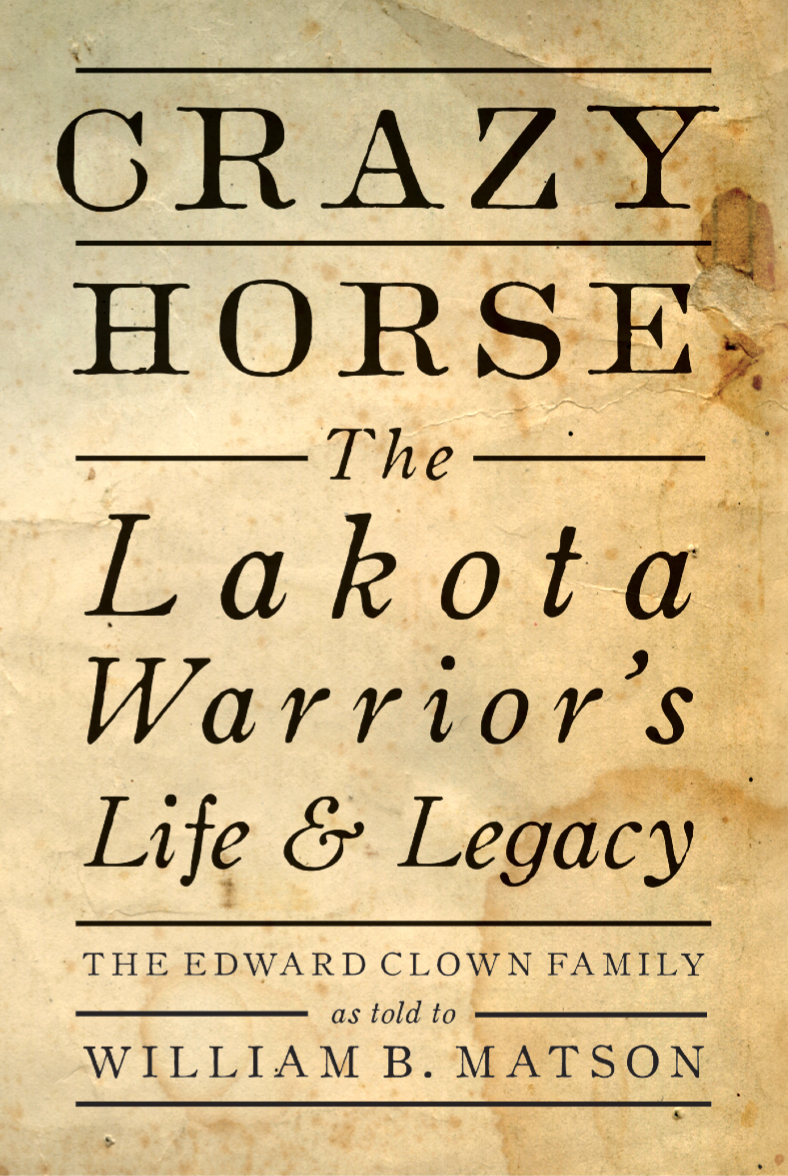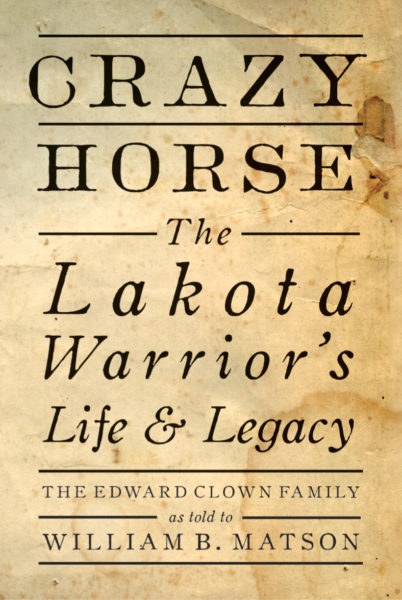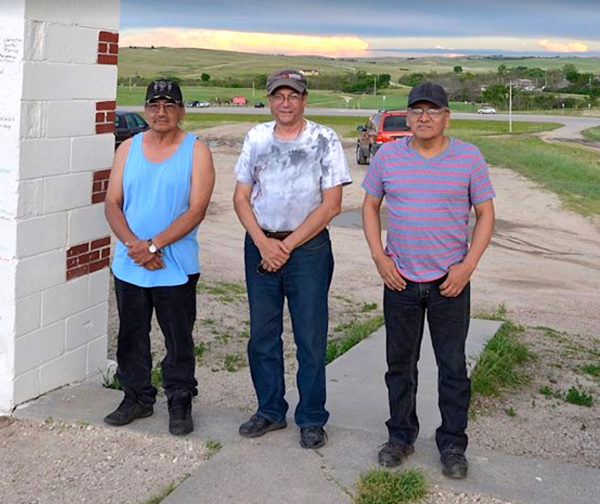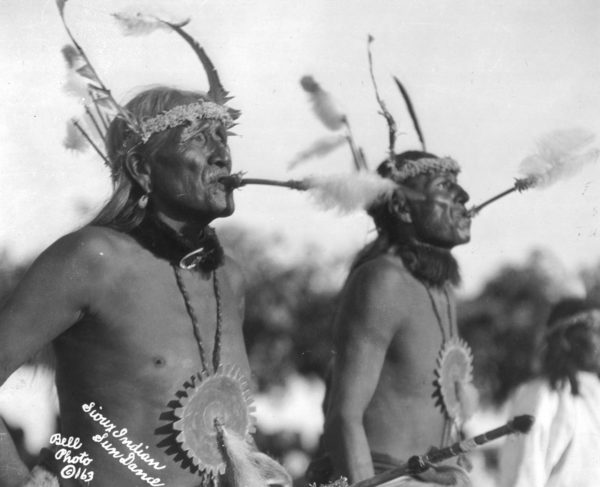
19 Feb WPL: “Crazy Horse: The Lakota Warrior’s Life & Legacy,”2/28
On Wednesday, February 28, 6 p.m., meet author Bill Matson and Floyd Clown, a member of Crazy Horse’s family at Telluride’s Wilkinson Public Library. The program is hosted by the Telluride Library and Between the Covers Bookstore.
Scroll down to listen to a podcast featuring Matson and Clown.

Author William B. Matson & Floyd Clown, blood relative of Crazy Horse.
Outdoor ethics suggests that when camping or hiking we leave little or no trace in the wilderness. Author William B. Matson applied the same principle when writing “Crazy Horse: TheLakota Warrior’s Life & Legacy.”
Matson’s ”Crazy Horse: The Lakota Warrior’s Life & Legacy” is the first, first-hand account of the Native war hero told completely from Native oral histories and verified by his closest surviving relatives. To preserve the tradition of oral history as much as possible, Matson wrote in the first person.
“I tried to leave as little a footprint as I could,” Matson told the Missoula News. “I wanted the reader to feel as though they were talking directly to the family, which to a certain extent, they are. I tried to include the emotion of it, too, because without the emotion, it’s not the same story. When someone would cry or their voice would crack, I included that in the experience.”

From the year he was murdered in 1877 until just a couple of decades ago, Crazy Horse’s extended family, all of whom refer to him as “grandfather,” stayed silent about the leader. Fearful of government retribution, the Lakota war hero’s closest blood relatives chose to remain in hiding from the 1930s to 2001, waiting for guidance from their ancestors.
Because Crazy Horse has no direct descendants, the Clown family is related by blood through his half-sister, Iron Cedar. In 2001, Crazy Horse’s relatives decided to break their silence. They related their life history to Matson, including Crazy Horse’s or Tashunke Witko,’s boyhood, family life, hunting, fights and family history. They recounted the attack on Lt. Col. Fetterman; the Wounded Knee massacre; the battles of Rosebud and Little Big Horn in 1876; and the murder of Crazy Horse at Fort Robinson. Clowns also noted that Crazy Horse had a premonition of his demise 15 months before his death.

Matson with Floyd & Doug Clown
On Wednesday, February 28, 6 p.m., meet author Bill Matson and Floyd Clown at Telluride’s Wilkinson Public Library. The program is hosted by the Telluride Library and Between the Covers Bookstore.
The oral history differs in many key ways from what has become the standard and widely accepted biography of Crazy Horse, dozens of them written by outsiders, all rife with misconceptions and inaccuracies, fiction and myths that got passed on as fact from book to book into the annals of American history.
Through Matson’s work, however, the family finally gets to right the wrongs, clarify the inaccuracies and share their stories about the past. The narrative missing factual puzzle pieces, such as Crazy Horse’s true sub-tribe and how Custer might have died at Little Bighorn; what it means to them to be Lakota; the family genealogy; the life of Crazy Horse and his motivations; his death; and why they chose to keep quiet with their knowledge for so long before finally deciding to tell the truth as they know it. The story deals with larger, thematic differences too about how Crazy Horse has been portrayed.

Part history, part family memoir, entirely committed to reclaiming Lakota culture and continuing Crazy Horse’s purpose to protect his people and their land, Matson’s beautiful and heartbreaking “Crazy Horse: The Lakota Warrior’s Life & Legacy,” is a compelling addition to the body of works about Crazy Horse and the complicated and often conflicting events of that period of exploitation in American History.
And it all began with Bill Matson’s father.
During World War II, the man was a member of the 7th Cavalry, the George Armstrong Custer’s cavalry. Whenever soldiers were asked who won the Battle of Little Bighorn, Matson’s father was rebuked for answering “the Indians.”
After the war ended, Matson’s father dedicated time and effort to telling the Native American side of those events. His dream was to write the history of Little Bighorn from the Native point of view. Before the man could complete his work, his mission really, he died of lymphoma in 1998.
On his deathbed, Matson’s father asked his son to finish his project.
”Crazy Horse: The Lakota Warrior’s Life & Legacy,” literally a labor of love, is the result of 16 years of intense work, involved countless interviews with the Clown family and a move to South Dakota.
To learn more, click the play button and listen to my interview with Bill Matson and Floyd Clown.
https://soundcloud.com/telluride-inside/william-matson-floyd-clown
About William B. Matson:
William Matson has produced and directed an award-winning video, “Sitting Bull’s Voice,” as well as the two-part video series, “The Authorized Biography of Sitting Bull by His Great-Grandson,” and the four-part video series, “The Authorized Biography of Crazy Horse and His Family.”
Matson regularly speaks about these videos at film festivals.
He has been working with the Crazy Horse family since 2001 to tell their story.


Sorry, the comment form is closed at this time.